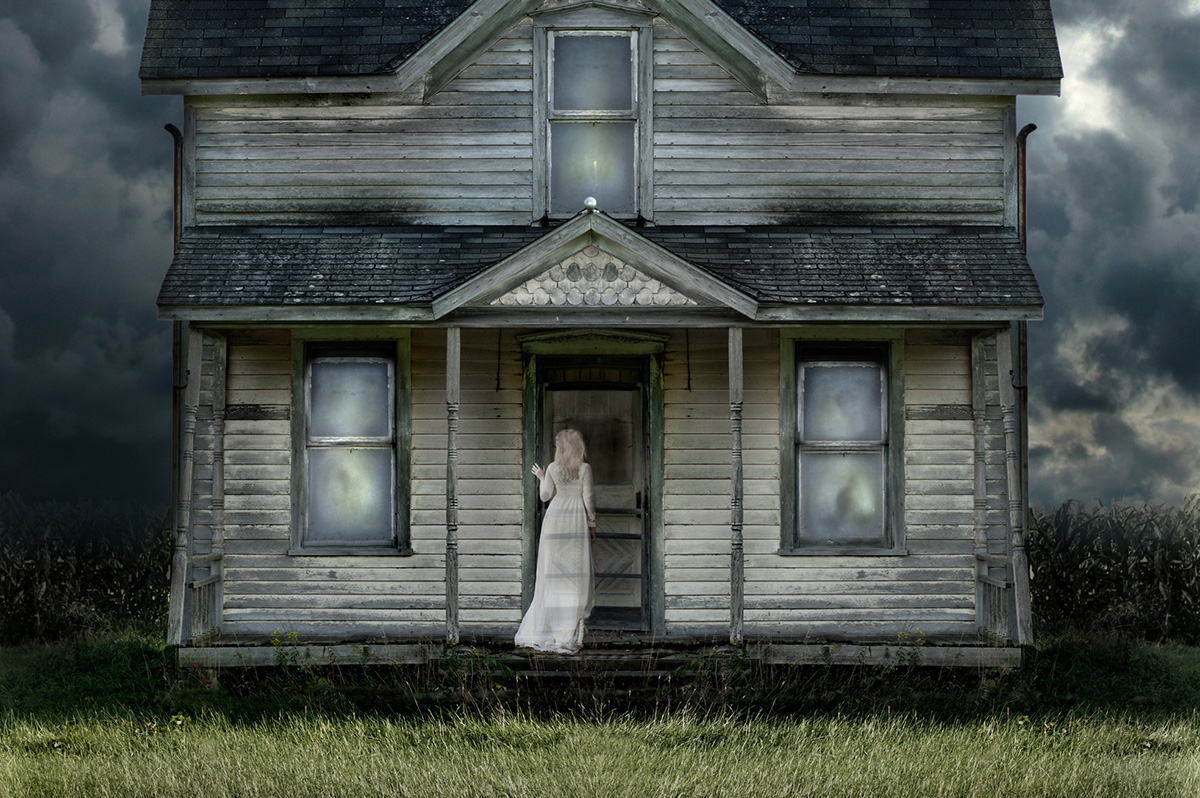Living
Confessions of a Pretty Lady
Sandra Bernhard on her live show, her comedic successors and the Prince cover she simply had to do

Sandra Bernhard
Saturday
8 p.m. (doors at 6)
Howard Theatre
620 T Street, NW
Thehowardtheatre.com
$35 advance, $40 door
By BRIAN WALMER

Sandra Bernhard brings her live show, an evening of stories and songs, to the Howard on Saturday night. (Photo courtesy of Roots Agency)
It’s a busy Monday afternoon for actress/comedian Sandra Bernhard when we talk.
“I’m dealing with lots of business stuff, tons and tons of stuff,” she says, her voice instantly recognizable.
Controversial, sexy, outspoken Bernhard has been a staple in the entertainment world for three decades and shows no signs of slowing down. She continues to appear on various TV shows and tours with her stage show, which is in Washington this weekend. Look for her Saturday night at the newly refurbished Howard Theatre.
In a sense, Bernhard, who’s been out for years, is not a typical comedian. She doesn’t just stand there telling joke after joke, waiting for the audience’s reaction. Instead, she engages the crowd with her views and takes on everything from politics to pop culture and weaves in a selection of songs that drive her point home.
Her current show, “I Love Being Me, Don’t You?,” debuted in 2011 and has evolved dramatically since then, a trend she credits to her constant wave of new ideas and her own boredom.
“Events occur and my life changes, things happen and I fold it in because I’m excited about telling a new story.”
Bernhard was here in 2008 for a three-week engagement at The Jewish Community Center for the 20th anniversary of “Without You I’m Nothing,” a show that helped put her on the map in the late ‘80s.
“It’s always interesting to look back and have a different perspective on what was going on at the time. Bring it into modern day. You of course have to alter it for what’s going on. A lot of it still holds up so I think that’s a great thing.”
She says D.C. audiences are more open minded than other markets.
“Actually I think they’re more informed, that makes them more open minded,” she says. “The last time I played D.C. was that long run at The JCC, so I assume that was sort of the general audience. They were relatively informed and smart as one would expect in D.C. They seemed to be into it. At the same time longing for entertainment, because I’m sure it’s tedious being in that city with all the politics and stuff. I really enjoyed performing there.”
Of her trademark out-of-left-field covers, which previously have included acts as far ranging as Nina Simone to Bob Dylan, AC/DC to Prince, she says she starts with the lyrics.
“It’s always a song that has a great story, lyric that resonates even if it at first it seems kinda hokey or over the top,” she says. “Like a hair metal song. It’s just like a song that I can tap into the emotion and turn it into something sorta different and that’s kinda the criteria for what I do.”
And, as one might expect, with Bernhard, it’s about much more than simply singing a song. One thinks of her recent take on Lady Gaga’s “The Edge of Glory,” which elicits an “exactly” from the comedian.
“You gotta really give the audience what they came to see and what they pay for,” she says. “And never make fun of a song. I don’t like making fun of songs even if they’re sort of laced with irony and I’m bringing something very different to them.”
Later this month, Bernhard will be at Carnegie Hall for a Prince tribute.
“As you know, ‘Little Red Corvette’ is kinda my signature song and when I read about it I called my manager and said, ‘You gotta get me on this, I mean this is insane, this is like my signature song, nobody else can do this,’ so when it all came together I was very excited.”
The mix of comedy and music is more unusual in the performing world than you might initially think. Along the way, Bernhard has recorded four albums of music. She says she’d love to do another studio album and would “love to collaborate with a great producer. But you know you need money and need support and I don’t really have that right now, but I hope I do again. In the meantime at least when people come see me perform, they know I’m in the pocket.”
The day of our phone chat is the Monday after the Grammys, which Bernhard said she watched just enough of “to know it was really depressing.”
Why?
“The music business is so [pauses] it’ll never be what it was,” she says. “[The Grammys] tries to keep this illusion alive and it just doesn’t work anymore.”
But with the paradigm shift has come certain freedoms, Bernhard suggests. She maintains a level of control that would be harder to ensure at a major label. Despite the constantly evolving nature of her tour, she says her various live releases still manage to capture enough of each show she does to keep her happy. Look for a release culled from a five-night run she did at Joe’s Pub in New York last year “soon,” she says.
Since Bernhard gets asked constantly about Madonna — everyone remembers her famous cameo in “Truth or Dare” — we took a different route. Of Cyndi Lauper, whom Bernhard joined for a few dates on the singer’s 2006 “Body Acoustic Tour,” she waxes nostalgic with no apparent subtext.
“She’s a great talent and it was fun and interesting,” Bernhard says. “I didn’t do that many shows; it was just the right amount. We knew each other and she needed some support out on the road and they asked if I wanted to do some of the dates and I said ‘Yeah, you know, sure.’”
Bernhard has seen a few episodes of Lauper’s new reality show.
“I think it’s sort of entertaining in a way you know? It’s yeah [pause], I don’t know if she’s happy with it. I’m sure it was sort of a real compromise on her part.”
Is there nobility in the willingness of Lauper — or any star — to put him- or herself out there to that degree?
“I don’t think that’s necessarily enchanting for people,” she says.
And yes, Bernhard considered the idea herself, perhaps to a further degree than many fans may realize. She says her idea for “A Day in the Life of Sandra Bernhard,” she calls a “lightly scripted version of my life” she pitched 18 years ago to HBO, failed to secure a green light.
“They didn’t understand what I was talking about. It was kind of the first and the last of it all.”
A more recent delve into similar terrain — her web show “Comedians Walking and Getting Mani-Pedis,” intended as an answer of sorts, to Jerry Seinfeld’s “Comedians in Cars Getting Coffee,” ended up being “kind of an experiment” that “I wasn’t really happy with.”
Despite guests like Lizz Winstead, Rosie Perez and Wendy Williams, Bernhard says it “didn’t go where I wanted it to go.”
“I came up with the idea of doing a show from the manicuring station but the people who produce it came up with that stupid title and I was totally not into it,” she says.”
It’s on indefinite hiatus.
We dart around to all kinds of topics in our remaining moments and Bernhard, whom, as you might imagine, can be intimidating, is game for it all.
She does confess to a little self-censorship when it comes to whether her soon-to-be-15-year-old daughter, Cicely, is in the audience or not. She knows she’s sometimes mentioned in the act.
“I think sometimes now more than before it’s starting to irritate her,” Bernhard says. “When she’s at the shows, I try not to do certain pieces that I would do when she’s not there. She doesn’t follow me that closely either. Like if I came home with a CD, she’d never sit down and listen to it so I’m not too worried about her staring into the material per se.”
Because so much of her material is autobiographical, she has no plans to write a memoir. She says she’s been frank enough, though she confesses to “semi truthful, semi made up” story telling in her act, to keep her name largely out of tabloids.
Other celebs, she surmises, want it.
“You look at Rihanna and Chris Brown. Obviously they want the publicity. They’re willing to sacrifice their personal happiness, especially her. They got that whole thing going and I think it’s depressing, especially for a woman. I don’t think it’s necessary to put myself out there in that way.”
Her trademark openness, she says, made her own coming out nearly moot.
“My work always spoke for itself which was all about personal expression, independence and freedom, no matter who or what you are,” Bernhard says. “That’s really where I stand on all of that. What do I need to do that for? I’ve always been comfortable in my own skin.”
Celebs who make their coming out a proclamation or acceptance speech event — Jodie Foster at the Golden Globes is fresh on everyone’s mind — strike Bernhard as excessive.
“I don’t need approval of my peers or my supposed group. You know, I’m not a group kind of person. I find that very self-serving. Who fucking cares anyway?”
Pressed for her comedic successors, she cites the cast of “Bridesmaids” and name checks Melissa McCarthy, Kristen Wiig and Amy Poehler.
“All that kind of grouping of girls who kinda came from the imrpov world are just really smart and funny and talented.”
She calls the late Phyllis Diller, whom she appeared with on Roseanne Barr’s “Roseanne’s Nuts,” “amazing and incredible — I just love her for who she was and all the years she kept at it and was so brilliant. She’s a fabulous person. I’m so glad I got to know her. She was really a cool lady.”
A new book — it would be her fourth — is “on the back burner.” Bernhard says she would need a “bigger platform” than she currently has to make it worth the effort.
There’s only one topic that comes up for which Bernhard is tight lipped.
Though vague, she does admit to a writer friend who “just came up with an idea for me and another actress that’s under development right now,” she says.
Could it be? Brash, outspoken Bernhard declining to elaborate?
For once, mystery prevails and she sounds almost coy.
“I’m really excited about it but I’m not gonna talk about it until it’s really happening.”
Real Estate
How federal layoffs, shutdown threaten D.C.-area landlords
When paychecks disappear, the shock doesn’t stop at the Beltway

When federal paychecks disappear, the shock doesn’t stop at the Beltway. It lands on the doorsteps of the region’s property owners, those who rent out their rowhouses in Petworth, condos in Crystal City, and homes stretching into Montgomery and Prince George’s counties. Landlords depend on steady rent from tenants employed by the very institutions that are now downsized or worse, shuttered.
This fall, Washington’s economic identity is being tested once again. Thousands of federal workers who accepted “deferred resignation” packages will soon lose their income altogether. And with a long government shutdown looming, even those still on the payroll face delayed paychecks. For landlords, that combination of uncertainty and sudden income loss threatens to unsettle a rental market already balancing on the edge.
A Test of Resilience
Rosie Allen-Herring, president of United Way of the National Capital Area, recently told The Washington Post, “This region stands to take a hard hit from those who are no longer employed but can’t find new employment and now find themselves in need. It’s a full-circle moment to be a donor and now find yourself in need, but it is very real for this area.” 1 That reversal captures the broader moment: The D.C. economy built on federal paychecks and charitable giving now faces a stress test of compassion and cash flow alike.
For landlords, adaptability will determine who weathers the storm. Those who are able to keep the rent coming in, retain their tenants or find replacement tenants without the same economic hardships are going to be able to get to the other side with manageable financial disruptions. Those who plan, communicate, and stay financially flexible will keep their properties occupied and their reputations intact.
A Region Built on Federal Pay
Roughly one in ten jobs in the Washington metropolitan area is tied directly to the federal government, according to the Bureau of Labor Statistics. That number climbs sharply when you include contractors, nonprofits, and think tanks dependent on federal funding.
This concentration means that when the federal government sneezes, D.C.’s housing market catches a cold. The Brookings Institution recently reported that since January, the region’s unemployment rate has climbed eight times faster than the national average, and local job growth has flattened. 1 More anecdotal, I’ve spoken with property owners this year who are looking to rent out the property they own in DC because they have to move to another region for work.
As The Post observed, “The region has shed federal jobs at a higher rate, and both the number of homes for sale and the share of residents with low credit scores have grown more quickly here than the rest of the country.” 1
For landlords, that’s a flashing warning light. When a certain category of tenants with solid compensation lose reliable government salaries and face dim re-employment prospects, rent becomes harder to collect and rent levels can decline year on year.
The Human Side of a Policy Shock
The people behind these statistics are often long-tenured civil servants. The Post profiled former State Department employee Brian Naranjo, who said he had “unsuccessfully thrown his résumé at more than 50 positions since resigning in May.” “It’s terrible,” Naranjo told the paper. “You have far more people going for those very specialized jobs than would normally be out there.” 1
Another displaced worker, Jennifer Malenab, a 42-year-old former Department of Homeland Security employee, described canceling daycare and family vacations while she scours job boards. “This is not where you want to be at 42, with a family,” she said. 1
When households like these lose steady pay, not only do they pull back on spending, but if they are renters landlords may see a lag in rent receipts, requests for partial payments, or in some cases, a premature notice to vacate. Some tenants will relocate out of the region altogether — a prospect already visible in rising “for sale” listings and increased moving-truck activity in Northern Virginia and suburban Maryland.
What Happens When the Rent Doesn’t Arrive
When rent payments are disrupted, even temporarily, the financial effects can be immediate. Many small landlords depend on rent to cover their mortgages, property taxes, insurance premiums, and routine maintenance. Even a temporary interruption in income can deplete reserves, delay repairs, and strain their ability to meet loan obligations.
Larger multifamily owners are not immune. If multiple tenants in a building lose income at once, cash flow can fall sharply. During the brief 2019 government shutdown, some D.C. landlords offered short-term payment plans to furloughed workers with the expectation of eventual back pay. However, under current conditions, where many positions are being permanently eliminated and paychecks may not be restored, landlords face much greater uncertainty and cannot assume repayment will be guaranteed.
In the District of Columbia, the Rental Housing Commission has advised landlords to continue operating strictly within established legal procedures and to avoid informal or selective payment arrangements that could be interpreted as discriminatory under the D.C. Human Rights Act. Courts in Virginia and Maryland allow temporary continuances when tenants provide documentation of a federal furlough or income disruption, but it is the court, not the landlord, that determines eligibility for relief.
How Landlords Should Proceed
- Continue filing nonpayment cases through normal legal channels rather than delaying action.
- Allow the courts to apply any continuance or relief provisions if a tenant qualifies due to federal employment status or income interruption.
- Avoid making selective accommodations based on a tenant’s job type or federal employment status, as this may violate equal-treatment and source-of-income protections.
Landlords with a single tenant or a consistent written policy of offering payment plans to all tenants experiencing verified income disruption should not be at risk of discriminatory treatment.
Vacancy, Concessions, and Shifting Demand
Beyond nonpayment of rent, landlords face a challenge from a different direction: weak demand. As fewer jobs are being created and unemployed or under-employed tenants move out of DC, the supply of available rental units will rise, forcing landlords to compete more aggressively on price and amenities.
Market data already point that direction. The volume of rental listings across the District of Columbia jumped roughly 14 percent year-over-year in September, according to the realtor Multiple Listing Service (MLS) trends, as reported by the Washington Business Journal. Landlords are offering free parking, one-month concessions, or flexible leases to retain quality tenants.
Neighborhoods once buffered by federal stability like Silver Spring, Falls Church, and Alexandria may now see higher tenant turnover. As one Arlington property manager put it, “We used to say federal employees were the safest tenants in America. Now we’re rewriting that rule.”
A Shrinking Workforce, a Softer Market
In addition to the layoffs, the region is contending with a broader identity crisis. “Yesim Sayin, executive director of the D.C. Policy Center, put it bluntly: ‘Beyond federal employment, we relied on tourism. But foreign tourists aren’t coming. And we relied a whole lot on universities bringing talent who would then stay here and be part of our talent pool. And that is kind of gone, too. So what are we now? We just don’t know.’” 1
This uncertainty may impact property values and investor sentiment. When employers relocate, renters follow. If enough mid-career professionals leave, demand for rentals will first soften and then we’ll begin to see a lowering of the average rents a landlord can command for their rental. We have already seen this in the current rental market. Rents that seems reasonable a few years ago, are now being discounted by hundreds of dollars. Landlords who are searching for new renters after several years of having tenants are finding that they need to bring rent levels below where they used to be to secure tenants commitments.
Strategies for Landlords: Staying Solvent and Supportive
In times like these, survival depends on both prudence and empathy.
1. Communicate early. Encourage tenants to disclose financial hardship before missing payments. Written payment plans, properly documented, can forestall eviction while preserving goodwill.
2. Review legal protections. Understand D.C., Maryland, and Virginia rules regarding furlough continuances or income-source discrimination. Seek legal counsel before altering lease terms mid-cycle.
3. Build reserves and credit access. Line up a home-equity or business line of credit to bridge shortfalls. Cash on hand always is helpful to have as a buffer for the impact of income disruption.
4. Monitor policy developments. State and local governments are supporting people who are affected by the lay-offs. Landlords can benefit indirectly through their renters who are utilizing these programs to assist them in paying their monthly expenses.
5. Contact your Congressional representatives to demand the reopening of the federal government. And in D.C., you do benefit from representation, even though they cannot vote. They can influence decisions that matter.
Scott Bloom is owner and senior property manager of Columbia Property Management.
Real Estate
Real terrors of homeownership come from neglect, not ghosts
Mold, termites, frayed wires scarier than any poltergeist

Each October, we decorate our homes with cobwebs, skeletons, and flickering jack-o’-lanterns to create that spooky Halloween atmosphere. But for anyone who’s ever been through a home inspection there’s no need for fake scares. Homes can hide terrors that send chills down your spine any time of year. From ghostly noises in the attic to toxic monsters in the basement, here are some of the eeriest (but real) things inspectors and homeowners discover.
Every haunted house movie starts with a creepy basement, and in real life, it’s often just as menacing. Mold, mildew, and hidden water leaks lurk down there like invisible phantoms. At first, it’s just a musty smell — something you might brush off as “old house syndrome,” but soon enough, you realize those black or green patches creeping along the walls can be more sinister than any poltergeist.
Black mold (Stachybotrys chartarum) is particularly fearsome – it thrives in damp, dark places and can cause serious respiratory problems. It’s not just gross – it’s toxic and, while some types of mold can be easily cleaned up, removing black mold can cost more than an exorcism.
Have you ever heard strange buzzing or seen flickering lights that seem to move on their own? Before you call the Ghostbusters, call an electrician. Faulty wiring, outdated panels, and aluminum circuits from the mid-20th century are the true villains behind many mysterious house fires. Home inspectors can also find open junction boxes, frayed wires stuffed behind walls, or overloaded breaker panels that hum like a restless spirit.
Imagine an invisible specter floating through your home – something that’s been there since the 1950s, waiting for you to disturb it. That’s asbestos. Home inspectors dread discovering asbestos insulation around old boilers or wrapped around ductwork. It’s often lurking in popcorn ceilings, floor tiles, and even wall plaster. You can’t see it, smell it, or feel it—but inhaling those microscopic fibers can lead to serious illness decades later.
Lead pipes, once thought to be durable and reliable, are like the vampires of your water system – quietly poisoning what sustains you. The results of a lead test can be chilling: even a small amount of lead exposure is dangerous, particularly for children.
And it’s not just pipes – lead paint is another problem that refuses to die. You might find it sealed beneath layers of newer paint, biding its time until it chips or flakes away. This is why, when selling a property built prior to 1978, homeowners must disclose any knowledge of lead paint in the home and provide any records they may have of its presence or abatement.
Scratching in the walls. Tiny footsteps overhead. Droppings in the attic. It’s not a poltergeist – it’s pests. Termites, rats, bats, carpenter ants, and even raccoons can do more damage than any ghost ever could.
Termites are the silent assassins of the home world, chewing through beams and joists until the structure itself starts to sag. Rats and mice leave behind droppings that can spread disease and contaminate food. Bats are federally protected, meaning your haunted attic guests can’t just be evicted without proper precautions. And I once had a raccoon give birth in my chimney flue; my dogs went crazy.
Ever step into a home and feel the floors tilt under your feet? That’s no ghostly illusion – it’s the foundation shifting beneath you. Cracked walls, doors that won’t close, and windows that rattle in their frames are the architectural equivalent of a horror movie scream.
Foundation damage can come from settling soil, poor drainage, or tree roots rising from under the structure. In extreme cases, inspectors find entire crawl spaces flooded, joists eaten by rot, or support beams cracked like brittle bones. Repair costs can be monstrous – and if left unchecked, the whole house could become a haunted ruin.
Some homes hold more than just physical scares. Behind the drywall or under the floorboards, inspectors may uncover personal relics – old letters, photographs, even hidden safes or forgotten rooms. Occasionally, however, there are stranger finds: jars of preserved “specimens,” taxidermy gone wrong, or mysterious symbols scrawled in attic spaces.
These discoveries tell stories of the people who lived there before, sometimes fascinating, sometimes chilling, but they all add to the eerie charm of an old home, reminding us that every house has a history — and some histories don’t like to stay buried.
So, while haunted houses may be a Halloween fantasy, the real terrors in homeownership come from neglect, not ghosts. Regular inspections, good maintenance, and modern updates are the garlic and holy water that turn a trick of a home into a treat.
Valerie M. Blake is a licensed associate broker in D.C., Maryland, and Virginia with RLAH @properties. Call or text her at 202-246-8602, email her via DCHomeQuest.com, or follow her on Facebook at TheRealst8ofAffairs.
Advice
Sexual desire is waning, should we open our relationship?
Couple faces difficult choices after seven years

Dear Michael,
When I met my husband seven years ago, I was super attracted to him and we had a really hot sex life.
That feeling has been waning for a while and now I am just not feeling it.
I know that people get older, gain weight, get less attractive over time but that’s not the case here. Ben is as good looking as ever. But I have little desire to have sex with him.
It bothers me that I don’t really want to have sex with the guy I love and want to spend the rest of my life with.
Is this why everyone else I know has an open relationship? Is there something I can do to want to have sex with my husband again?
This is causing major problems in my marriage. I don’t initiate anymore and half the time I find an excuse to not have sex when Ben initiates. He knows something is up but I usually blame it on work stress or not feeling well. I don’t want to hurt his feelings.
Aside from this, I love Ben and we have a lot of fun together. We’re very close, talk about all sorts of stuff, but not this.
Michael replies:
Pretty much everyone in a long-term relationship has to deal with decreased desire at some point.
Sex changes after you’ve been with your partner for a while. Sex is not going to be as easy, hot, and irresistible as it was at the beginning of the relationship. Newness generates a lot of the sexual heat at the outset of a relationship, and when the newness is gone, you don’t easily feel the same sizzling excitement that you felt when you first met.
Unfortunately, the kind of sex that people have at the beginning of a relationship is totally glorified in our culture as the gold standard of sex.
I say “unfortunately” because it’s not possible to consistently have the hot sex of a new relationship, ongoing, with a long-term partner. So if you think that is the best or only kind of sex to have, you will be contemptuous of anything else, and you will be disappointed in your sex life with your partner as time marches on.
But the sizzling sex people have at the start of a relationship is just one way to have sex. If you are willing to be imaginative, and are open to change, there are many other kinds of sex that can be wonderful.
How about sex for emotional connection? Sex for physical closeness? Sex for romance? Sex to celebrate just being together?
So, consider changing (not lowering!) your expectations. Rather than sulking or moping that you don’t want to spontaneously jump Ben’s bones, be open to having sex with your husband that is based more on your relationship and on your love for each other.
Now, here’s a whole other angle to consider: While the excitement of a new partner often fades, there are still ways to generate excitement and passion in a long-term relationship by taking risks and revealing yourself more deeply. Stick with me and I’ll explain.
- You haven’t said anything to Ben about your waning interest. I encourage you to re-think this. You would be much better positioned to tackle this issue collaboratively. Not talking about how stuck you feel is likely to deepen your feeling of shame and fear that something is wrong. Speaking with Ben about what is actually a fairly common couples’ issue could be a relief.
- Ironic as this may seem, the closer two people are, the less comfortable they may be being frankly sexual with each other. Clients often tell me that they are more comfortable expressing their real desires to someone they hardly know (or don’t know at all) than to their significant other. For one thing, the more your partner means to you, the more you may fear rejection if you reveal sexual feelings and desires that might upset or even shock your partner. For another, as couples get closer, sex may start to feel like too much closeness, and avoiding sex may be a way to create some space.
Not speaking up about what is important keeps you distant from your partner and drains your relationship of vitality. A powerful antidote to this: work toward becoming a person who can take risks, tolerate discomfort and uncertainty, and be able stand on your own when you don’t get your partner’s validation.
Talking with Ben, whether it’s about your lack of spontaneous desire for sex, or about sexual interests you may be keeping from him for fear of judgment, would involve your making uncomfortable moves that might lead to Ben’s judgment or even rejection. But doing so would also, of course, allow the possibility of more happening between you sexually. It would also let Ben know you better, thereby deepening the level of intimacy in your relationship. Making these moves could also be inherently exciting, which —guess what—could help to shake you out of your sexual doldrums and bring more passion and life into your relationship.
Similarly, you might start initiating. Even if you’re afraid it won’t go well and even if you’re not feeling it. That is the only way you are going to figure out how to have satisfying long-term sex. Take the need for an erection or orgasm off the table. Sex with your partner should not be a performance. Go for closeness, connection, and what feels good. And challenge yourself to go places that you are uncomfortable about going.
If any of this intrigues you, “Passionate Marriage” and “Intimacy and Desire,” both by David Schnarch, explore how your sexual connection can deepen over time in a long-term relationship.
Finally, with regard to your considering an open relationship as a remedy: Do you think that would enhance the sexual connection between you and Ben?
Michael Radkowsky, Psy.D. is a licensed psychologist who works with couples and individuals in D.C. He can be found online at michaelradkowsky.com. All identifying information has been changed for reasons of confidentiality. Have a question? Send it to [email protected].
-

 U.S. Supreme Court1 day ago
U.S. Supreme Court1 day agoSupreme Court rejects Kim Davis’s effort to overturn landmark marriage ruling
-

 District of Columbia5 days ago
District of Columbia5 days ago‘Sandwich guy’ not guilty in assault case
-

 U.S. Supreme Court5 days ago
U.S. Supreme Court5 days agoSupreme Court rules White House can implement anti-trans passport policy
-

 U.S. Supreme Court4 days ago
U.S. Supreme Court4 days agoLGBTQ legal leaders to Supreme Court: ‘honor your precedent, protect our families’

















